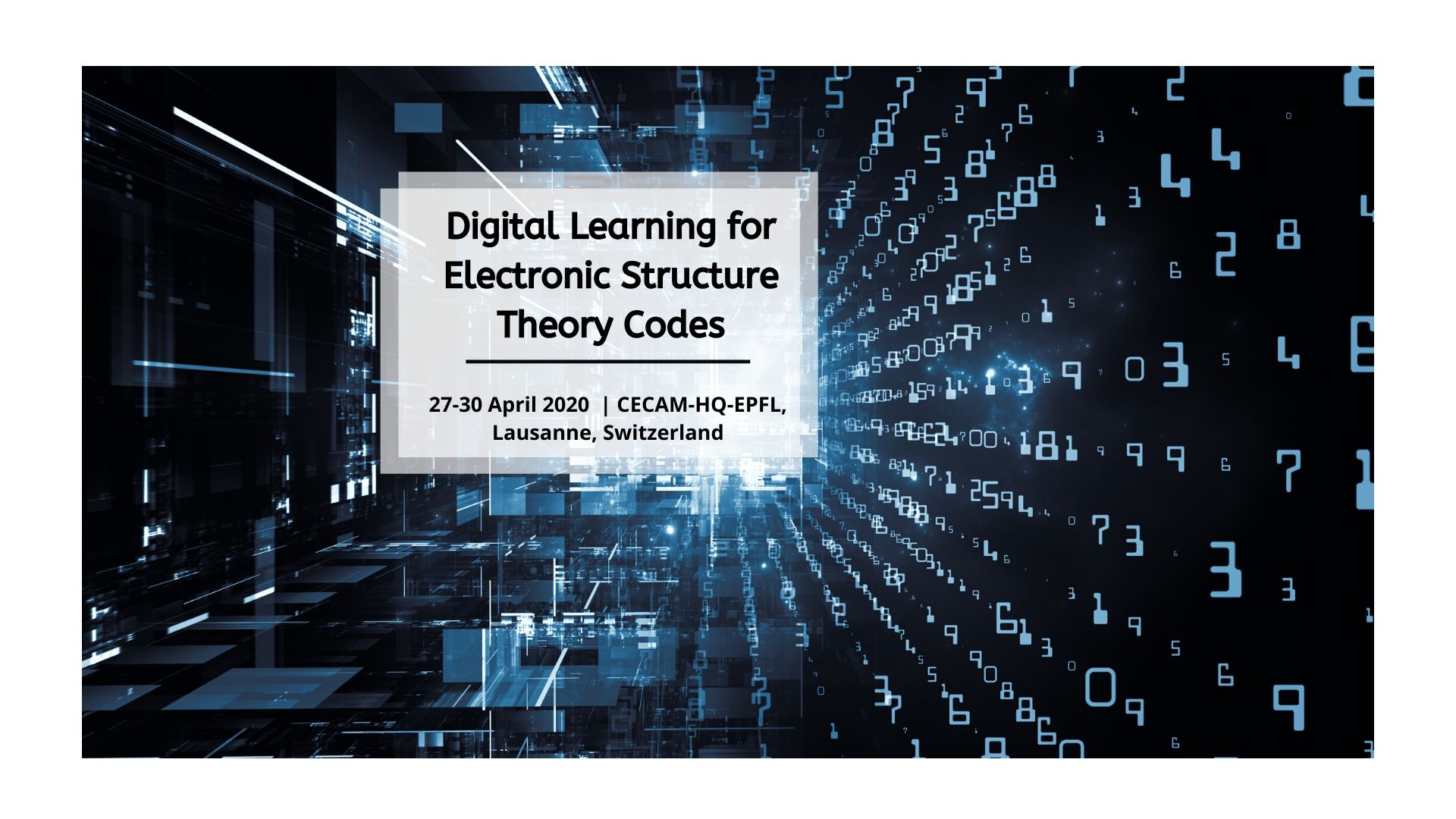
NEWS: The "Digital Learning for Electronic Structure Theory Codes" School, initially scheduled in Lausanne from April 27 to April 30, has been postponed to a later date. We will keep you abreast once the new date will be confirmed.
Over the entire century of its existence, electronic structure theory and how to use the corresponding codes on high-performance computing architectures, have been taught to the next generations in the form of printed books and classroom lectures/workshops. As for any human activity, this format was dictated by a compromise between effectiveness and economy. It would have been most effective to put a personal teacher next to every student, yet that is hopelessly expensive. It would have been a cheaper solution to send VHS videotapes of excellent lectures/training to every student, but that is not at all effective: this rapidly developing field makes a videotaped lecture quickly obsolete, and a static video leaves no opportunity for personal questions by the student. The compromise that served us well for a long time, has been human teachers talking to an entire class at once about the content available in lecture notes or books, ready to answer questions asked by the students present.
Meanwhile, technology has evolved beyond the level of printed books and VHS videotapes. In response to this, and with some inertia, teaching models that make optimal use of these new technological possibilities are developing. The internet allows for rapid distribution of digital video and digital text, with synchronous or asynchronous communication channels between teacher and students and/or among students, and with different types of (semi-)automated interaction between the student and the course material. This can be used for fully online teaching or blended with physical class time.
Both for teacher and student, the hard- and software to create or take online teaching modules has become accessible and affordable for many. Trend watchers think tanks and formal councils alike expect this will change the higher education landscape in a way that cannot be fully predicted as yet. The crucial missing ingredient is expertise among teachers, didactically as well as technically. Therefore, it is the right time to ask: how can we, as a research community that is also teaching to the next generations and to (new) users of our codes in the industry, educate ourselves about creating online teaching material?
A decade of exploration of online teaching has led to an emerging consensus about good practices in digital/online didactics. So far, this knowledge sits within pedagogical departments and with early adopters in different research fields, but it has not yet permeated the bulk of the electronic structure community. The aim of this school is to spread knowledge and lower thresholds to start using online teaching methods and creating educational resources to that end, with an emphasis on content that is relevant for flagship codes we use and develop, in particular within MAX. The approach will be practical and hands-on, such that participants develop a good view of what is possible for them, with their background and with the environment they operate in.
More info and application
References
The Digital Turn – pathways for higher education in the digital age (by Hochschulforum Digitalisiering, a German think tank on higher education and digital learning)
Quantum Leaps We Can Expect in Teaching in the Digital Age – a roadmap (by Stephen Downes, a Canadian philosopher and commentator on online learning and new media)
Can the universities of today lead learning for tomorrow? The university of the future. (by Ernst & Young Australia, an analysis of the future of higher education in Australia)
e‐Learning and the Science of Instruction: Proven Guidelines for Consumers and Designers of Multimedia Learning (book by R.C.Clark and R.E.Mayer, 2016)

